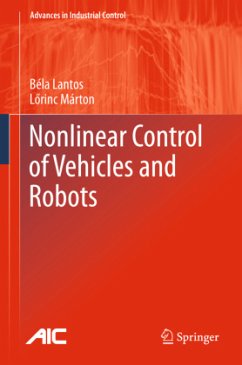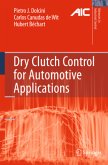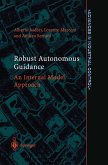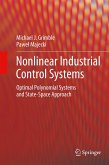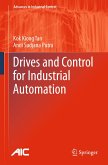Nonlinear Control of Vehicles and Robots develops a unified approach to the dynamic modeling of robots in terrestrial, aerial and marine environments. The main classes of nonlinear systems and stability methods are summarized and basic nonlinear control methods, useful in manipulator and vehicle control, are presented. Formation control of ground robots and ships is discussed.
The book also deals with the modeling and control of robotic systems in the presence of non-smooth nonlinearities. Robust adaptive tracking control of robotic systems with unknown payload and friction in the presence of uncertainties is treated.
Theoretical and practical aspects of the control algorithms under discussion are detailed. Examples are included throughout the book allowing the reader to apply the control and modeling techniques in their own research and development work. Some of these examples demonstrate state estimation based on the use of advanced sensors as part of the control system.
The book also deals with the modeling and control of robotic systems in the presence of non-smooth nonlinearities. Robust adaptive tracking control of robotic systems with unknown payload and friction in the presence of uncertainties is treated.
Theoretical and practical aspects of the control algorithms under discussion are detailed. Examples are included throughout the book allowing the reader to apply the control and modeling techniques in their own research and development work. Some of these examples demonstrate state estimation based on the use of advanced sensors as part of the control system.
From the reviews: "The presented book first briefly outlines the most important nonlinear control algorithms that can be applied for the control of mechanical systems. ... The book is aimed at researchers who are interested in modern control algorithms and advanced modeling techniques of the most common mechatronic systems: vehicles and robots." (Bojidar Cheshankov, Zentralblatt MATH, Vol. 1236, 2012)

